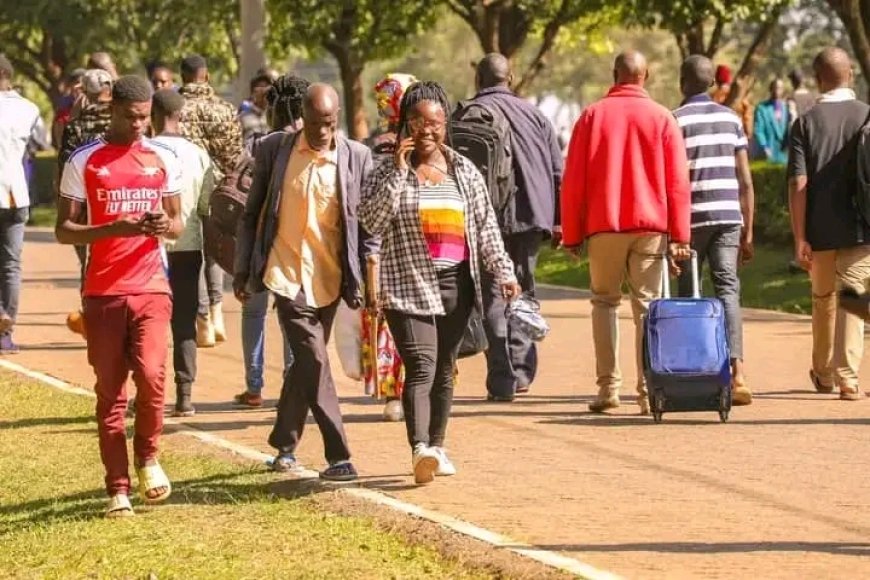Lectures strike Forces MMUST to Extend Semester Amid Academic Uncertainty

Kakamega,
Friday, 22 November, 2024
McCreadie Andias
Masinde Muliro University of Science and Technology (MMUST) has announced the extension of its 1st Semester for the 2024/25 academic year into January 2025, following six weeks of disrupted studies caused by the ongoing lecturers' strike.
This decision comes as part of a wider crisis impacting Kenya’s public universities, with unresolved negotiations over the Collective Bargaining Agreement (CBA) leaving institutions struggling to maintain their academic calendars.
In a memo issued by the University’s Examination Senate Board, MMUST confirmed that Semester 1 exams will now be held on January 20, 2025, a significant delay from the originally scheduled date of December 2, 2024.
Despite the postponement, students are urged to remain on campus and continue their learning until the semester officially closes on December 20, 2024, in preparation for the rescheduled examinations.
The delay is expected to have a cascading effect on the academic timetable, particularly the second semester, which was initially set to begin in January 2025.
MMUST officials have acknowledged that the teaching calendar will require revision and adjustment to accommodate the changes, though specific details have yet to be finalized.
MMUST is not alone in facing these challenges. Kenyatta University, another leading public institution, announced last week that it would also postpone its Semester 1 exams to January 2025 due to the same issue. These disruptions underline the far-reaching impact of the lecturers’ strike, which continues to paralyze academic activities across the country.
The lecturers' strike, led by members of the Universities Academic Staff Union (UASU), stems from an unresolved stalemate over the implementation of the 2022-2027 CBA.
The union has consistently demanded improved salaries and working conditions for academic staff, citing inflation and the rising cost of living as key factors necessitating the adjustments. On the other hand, the government has argued that financial constraints have hindered the timely implementation of the agreement.
As negotiations drag on, the academic future of thousands of university students hangs in the balance. Stakeholders have expressed concerns over the prolonged disruption, emphasizing the potential long-term consequences for Kenya’s higher education sector.
For MMUST students, the announcement of the semester extension has sparked mixed reactions. While some welcome the additional time to prepare for exams, others express frustration over the uncertainty surrounding their academic progress.
“It’s not just about the exams being delayed; it’s about how this will affect our plans for internships, projects, and even graduation timelines,” said a third-year student who requested anonymity.
The university has attempted to mitigate the impact of the strike by urging students to utilize the extended time for study and research. However, with no resolution in sight, many students remain anxious about the possibility of further disruptions.
The ongoing strike highlights a deeper crisis within Kenya’s public university system, where chronic underfunding and strained labor relations have become recurring challenges. Analysts warn that unless sustainable solutions are found, the country risks undermining the quality and competitiveness of its higher education sector.
For now, all eyes are on the negotiations between UASU and the government, as students, lecturers, and institutions await a resolution that will restore normalcy.
What's Your Reaction?



































































































































































































































































































